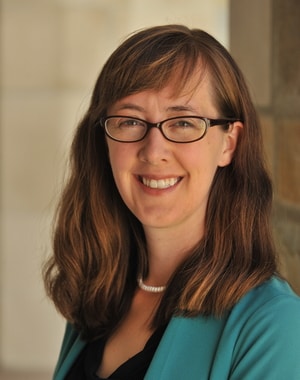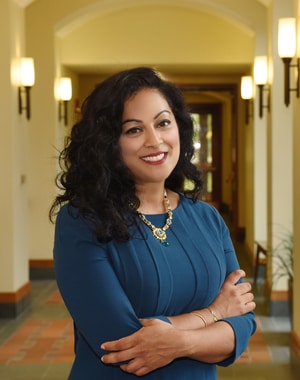
In August, John Z. Ayanian published a policy–focused article with colleagues in the New England Journal of Medicine titled “ Mitigating the risks of Medicaid work requirements.”
Michael S. Barr teamed up with Howell E. Jackson and Margaret E. Tahyar to release the second edition of their textbook Financial Regulation: Law and Policy. The book covers the financial sector, including the financial crisis, technological changes, ideology, and other factors. Barr also presented at a September event hosted by Brookings, “Responding to the Global Financial Crisis: What we did and why we did it,” held to mark the 10th anniversary of the financial crisis.

Susan M. Collins has been elected to a second three–year term (2019–21) as a director of the Federal Reserve Bank of Chicago. She also recently joined the executive committee of the board of directors of the Peterson Institute for International Economics. Collins was appointed by U–M Provost Martin Philbert this fall to serve on a blue–ribbon panel charged with exploring “the intersection of faculty members’ political ideology and their responsibilities to students.”
Alan Deardorff continues his travels. He’s recently presented papers at Oxford University; University College Dublin; at a conference in Cartagena, Colombia; and at the Korea Institute for International Economic Policy in Sejong, South Korea. Deardorff delivered the keynote speech at the Seoul International Forum on Trade Remedies in Seoul, South Korea.
Kathryn Dominguez was named to the Advisory Scientific Committee of the European Systemic Risk Board, which oversees the financial systems of the European Union.
Catie Hausman 
Ren Farley’s “Racial gaps in Detroit 50 years after the Kerner Report” was published in the Russell Sage Foundation Journal of the Social Sciences in September. He also presented “Demographic characteristics of the Middle Eastern population of metropolitan Detroit” at a Detroit conference on immigration and diversity. Farley and his wife have been training puppies to become service dogs; a recent trainee is now in service at a physical therapy clinic in Columbus.
Catie Hausman’s article with U–C Davis economist David Rapson, “Regression discontinuity in time: considerations for empirical applications” was published in the Annual Review of Resource Economics in October. Hausman also recorded a podcast on the impact of methane leaks for the University of Pennsylvania’s Kleinman Center for Energy Policy.
Paula Lantz and program manager Samantha Iovan have written a number of articles on their research regarding how social impact bonds are being used to address social welfare and public health. Their work has been published in the American Journal of Public Health and Behavioral and Social Policy, and by the Federal Reserve Bank of San Francisco. In November, Lantz presented some of their international comparative work on social impact bonds at a conference on “Public policy and leadership” in Hanoi, Vietnam.
Yusuf Neggers’ paper, “Enfranchising your own? Experimental evidence of bureaucrat diversity and election bias in India” was published in the American Economic Review in June. Neggers also received a grant from the National Science Foundation for a proposal titled “Is better access to information effective in improving labor market outcomes? Experimental evidence from India.”
Shobita Parthasarathy 
Brendan Nyhan published several articles, including “The science of fake news” in Science Magazine, “How conditioning on posttreatment variables can ruin your experiment and what to about it” in the American Journal of Political Science, “The roles of information deficits and identity threat in the prevalence of misperceptions” in the Journal of Elections, Public Opinion and Parties, and “Conspiracy and misperception belief in the Middle East and North Africa” in The Journal of Politics.
Shobita Parthasarathy’s book Patent Politics: Life Forms, Markets, and the Public Interest in the United States and Europe (University of Chicago Press, 2017) won the 2018 Robert K. Merton Award for an outstanding book on science, knowledge, and/or technology from the American Sociological Association Science, Knowledge, and Technology section. She also penned an opinion piece in the October 23, 2018 issue of Nature, titled “Use the Patent System to Regulate Gene Editing.”
Natasha Pilkauskas’ recent paper, “Beyond the nuclear family: Trends in children living in shared households” was published in Demography. The paper was co–written with PhD student Christina Cross.
Former U.S. Representative John J.H. “Joe” Schwarz (R–MI) was named to Michigan Governor–elect Gretchen Whitmer’s transition team.
Luke Shaefer was appointed by Michigan Governor Rick Snyder to the Commission on Community Action and Economic Opportunity. Shaefer was also one of just 22 Michigan faculty to receive this year’s U–M Faculty Recognition Award. The award recognizes Shaefer’s research and scholarship on poverty and social welfare, his mentorship of students, and his leadership of the university’s Policy Solutions Initiative.
Kevin Stange was named a co–editor of the Journal of Policy Analysis and Management (JPAM) after having served as a guest co–editor for a special JPAM issue focused on higher education policy. He was also awarded a $255,000 grant from the Smith Richardson Foundation for the study “A Major Decision? The Consequences of College Course Taking,” with colleagues Rodney Andrews (UT Dallas), Scott Imberman (Michigan State), and Mike Lovenheim (Cornell).
Megan E. Tompkins–Stange is a visiting professor in La Chaire Philanthropie of ESSEC Business School (École Supérieure des Sciences Economiques et Commerciale) this academic year. She recently published an article in Interest Groups and Advocacy, titled “Financing the Education Policy Discourse: Funders as Catalysts in Policy Networks,” and she gave a talk in December to Democrats Abroad in Paris about education policy, philanthropy, and market–based school reform.
CONGRATULATIONS
Shobita Parthasarathy has been promoted to professor of public policy. her research focuses on the comparative and international politics and policy related to science and technology. @shobitap
Joy Rohde has been promoted to associate professor of public policy with tenure. Her research focuses on the history of policy and social science research (post-WWII). @joyrohde
Welcome
Brendan Nyhan joins the Ford School as a professor of public policy. Coming to Michigan from Dartmouth College’s Department of Government, his research focuses on political communication, including misperceptions about politics and health care. Nyhan is a contributor to The New York Times, co-founder of democracy watchdog Bright Line Watch, and 2018 Andrew Carnegie Fellow. Nyhan received his PhD in political science from Duke University. @brendannyhan
Amanda Kowalski joins the U-M Department of Economics and the Ford School as the Gail Wilensky Professor of Economics and Public Policy. A health economist, she specializes in bringing together theoretical models and econometric techniques to inform current debates in health policy. Kowalski holds a PhD in economics from MIT and an AB in economics from Harvard.
Robert Hampshire joins the Ford School as an associate professor of public policy. In his work, he develops and applies operations research, data science, and systems engineering methodologies to public and private service industries. A queueing theorist, he has worked extensively with both public and private sectors partners worldwide. Hampshire received a PhD in operations research and financial engineering from Princeton University. @roberthampshire
Below is a formatted version of this article from State & Hill, the magazine of the Ford School. View the entire Winter 2019 State & Hill.